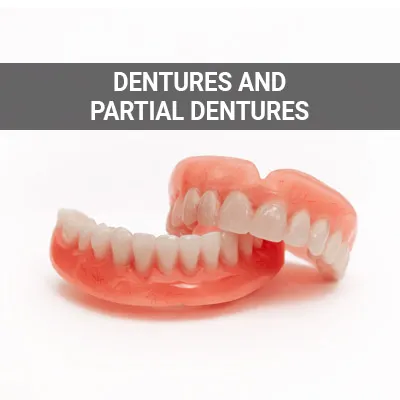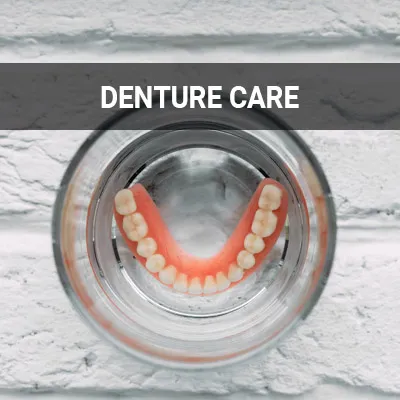Adjusting to New Dentures Los Angeles, CA
Adjusting to new dentures can be a challenge because the feel of these prosthetics is different from your natural teeth. However, once you get used to them, it should be a more enjoyable experience. If your dentures are new, expect a few weeks to adjust.
Getting dentures for the first time can be exciting, as a new set of teeth can restore much of the lost functionality of a person's original teeth. Those who wear dentures can find assistance with adjusting to new dentures at Dr. Robert B Tamaki, DDS in Los Angeles and the surrounding area. Call us at (310) 402-0156 for advice about adjusting to new dentures and modifying them for comfort.
Tips for Adjusting to New Dentures
While dentures improve the form and function of a person's smile, they feel and act differently than natural teeth. These differences can entail a learning curve as people must learn how to care for their dentures and get used to smiling, eating, speaking, and drinking while wearing dentures. It is important for people to continue wearing their dentures to help their mouth adjust. It is common for people to feel that their dentures are too loose or big at first. However, the tongue and mouth muscles will soon adjust and help keep the dentures in place.
Speaking is one of the most noticeable adjustments patients must make when adjusting to dentures. Patients may experience some difficulty speaking with them because of the changes in the way the mouth muscles move. We recommend that people practice reading out loud in front of a mirror during those first few weeks. Patients should also make sure they have the right denture adhesive and start by speaking slowly to get used to conversing with dentures.
“While dentures improve the form and function of a person’s smile, they feel and act differently than natural teeth.”
Denture Hygiene Routine
Another crucial aspect of adjusting to new dentures is a consistent and effective dental hygiene routine. Proper denture care is essential to maintaining the health of the gums and mouth. Dentures should be brushed and rinsed every day to remove food and plaque. It is also vital to soak dentures overnight since dentures need to remain moist to maintain their shape.
People should avoid using abrasive cleaning materials such as harsh or whitening toothpaste, hot water, and products that contain bleach. It is also essential to schedule regular dental check-ups. These appointments allow us to ensure that the dentures fit properly and prevent slippage and discomfort.
“Another crucial aspect of adjusting to new dentures is a consistent and effective dental hygiene routine.”
Expectations for the First 30 Days
During the 30-day adjustment period, patients should be gentle on their mouths and take their time adjusting to a new routine. New denture wearers should develop realistic expectations. While oral discomfort is normal and expected, dentures will start to feel more natural and comfortable over time. Increased salivation and sore spots on the mouth are also normal to experience during the first month of wearing new dentures.
While eating and speaking may feel foreign at first, practicing and having patience are key to the adjustment process. If there are still fit and comfort issues after a month, people should contact us for an adjustment appointment. After the first 30 days, people should be able to enjoy their everyday activities comfortably and confidently.
“During the 30-day adjustment period, patients should be gentle on their mouths and take their time with the new routine.”
Check out what others are saying about our dental services on Yelp: Adjusting to New Dentures in Los Angeles, CA
Change Eating Practices
New denture wearers may want to practice a few meals at home alone. In the first couple of days, focus on softer foods, such as mashed potatoes or yogurt. Avoid biting with the front of the teeth because this action may dislodge the dentures.
Doing things like chewing on both sides of the mouth, cutting food into small pieces, chewing slowly, and drinking fluids to wash the mouth out can all be effective ways to prepare for life with dentures. Be careful with hot liquids. Dentures insulate the mouth, making it less sensitive to heat.
“Doing things like chewing on both sides of the mouth, cutting food into small pieces, chewing slowly, and drinking fluids to wash the mouth out can all be effective ways to prepare for life with dentures.”
Questions Answered on This Page
Q. How should people adjust to their new dentures?
Q. How should people take care of their new dentures?
Q. What should new denture wearers expect during the first 30 days?
Q. How should patients change their eating practices with dentures?
People Also Ask
Q. What is the process of getting partial dentures?
Q. What is the proper way to take care of my dentures?
Q. What lifestyle changes will people experience after getting dentures?
Q. How should people take care of their dentures while traveling?
Q. What should I do if my dentures start to feel uncomfortable?
Q. What are the different types of dentures?
Q. What is a partial removable denture for one missing tooth?
Frequently Asked Questions
Q. Can new dentures be adjusted?
A. When you are adjusting to new dentures, you may experience discomfort when wearing them. If you see sores on your gums or tongue, the dentures may not fit correctly. Your dentist can adjust your dentures if necessary.
Q. What can I do for pain when I am adjusting to new dentures?
A. Use an oral topical gel or cream made to relieve pain. You can take over-the-counter pain relievers such as ibuprofen to reduce pain and inflammation. Take your dentures out at night and for extended periods during the day.
Q. Why do new dentures cause too much saliva?
A. When your mouth is adjusting to new dentures, there is a foreign object in your mouth. This makes your salivary glands work harder. After two weeks of wearing dentures, the saliva should decrease to more normal levels.
Q. How often should I see the dentist after getting new dentures?
A. You should make a yearly appointment with your dentist to check your dentures. This can verify fit and make sure they stay comfortable. This annual visit may include an exam to check for oral health issues, such as cancer.
Q. Can I sleep while wearing dentures?
A. Yes, you can wear your dentures at night. However, the American College of Prosthodontists recommends removing dentures while sleeping to give the gums a chance to rest from the pressure of the dentures. You should always take your dentures out every 24 hours to clean them.
Dental Terminology
Helpful Related Links
- American Dental Association (ADA). Glossary of Dental Clinical Terms. 2024
About our business, license, and website security
- Dr. Robert B Tamaki, DDS was established in 1985.
- We accept the following payment methods: Cash, CareCredit, Check, MasterCard, and Visa
- We serve patients from the following counties: Los Angeles County
- We serve patients from the following cities: Los Angeles, Santa Monica, Venice, Marina Del Rey, Redondo Beach, Hermosa Beach, Manhattan Beach, and Westchester
- CA (License #DDO-33386). View License Information and Specifics
- National Provider Identifier Database (1568559011). View NPI Registry Information
- Healthgrades. View Background Information and Reviews
- Norton Safe Web. View Details
- Trend Micro Site Safety Center. View Details
Back to top of Adjusting to New Dentures










